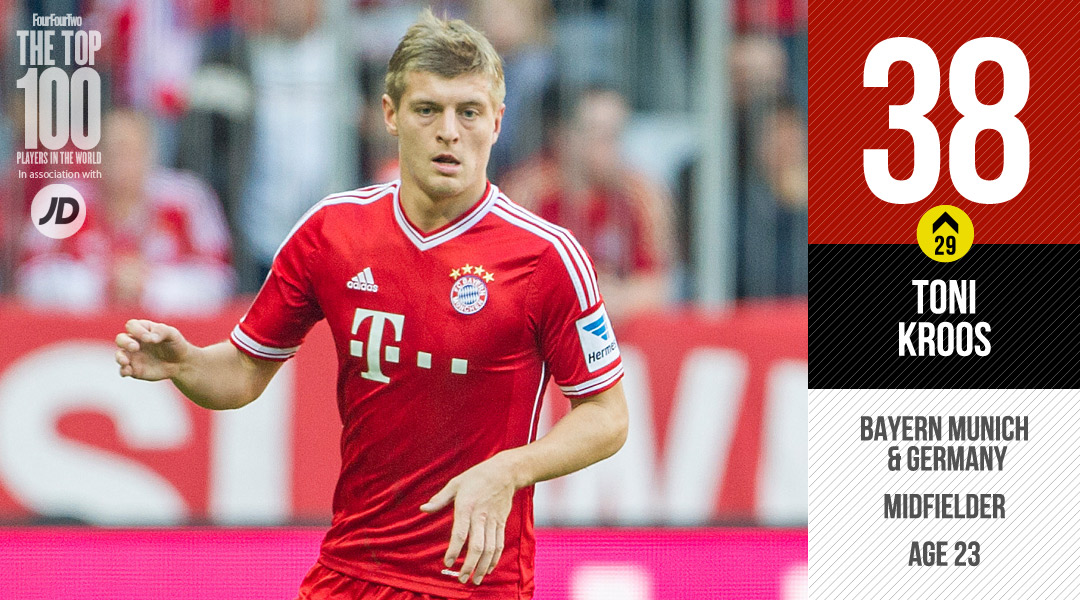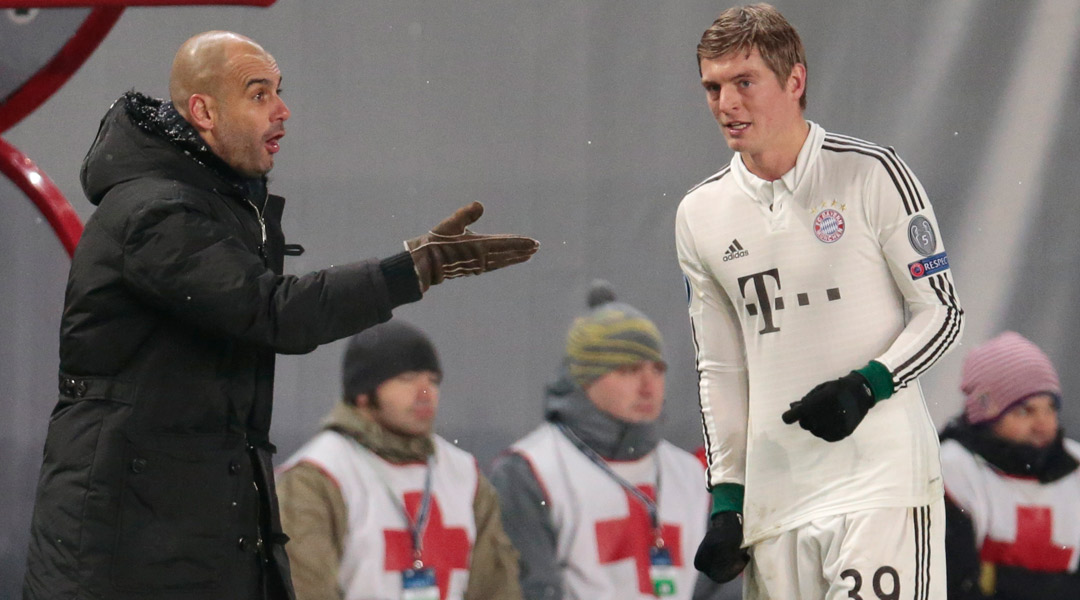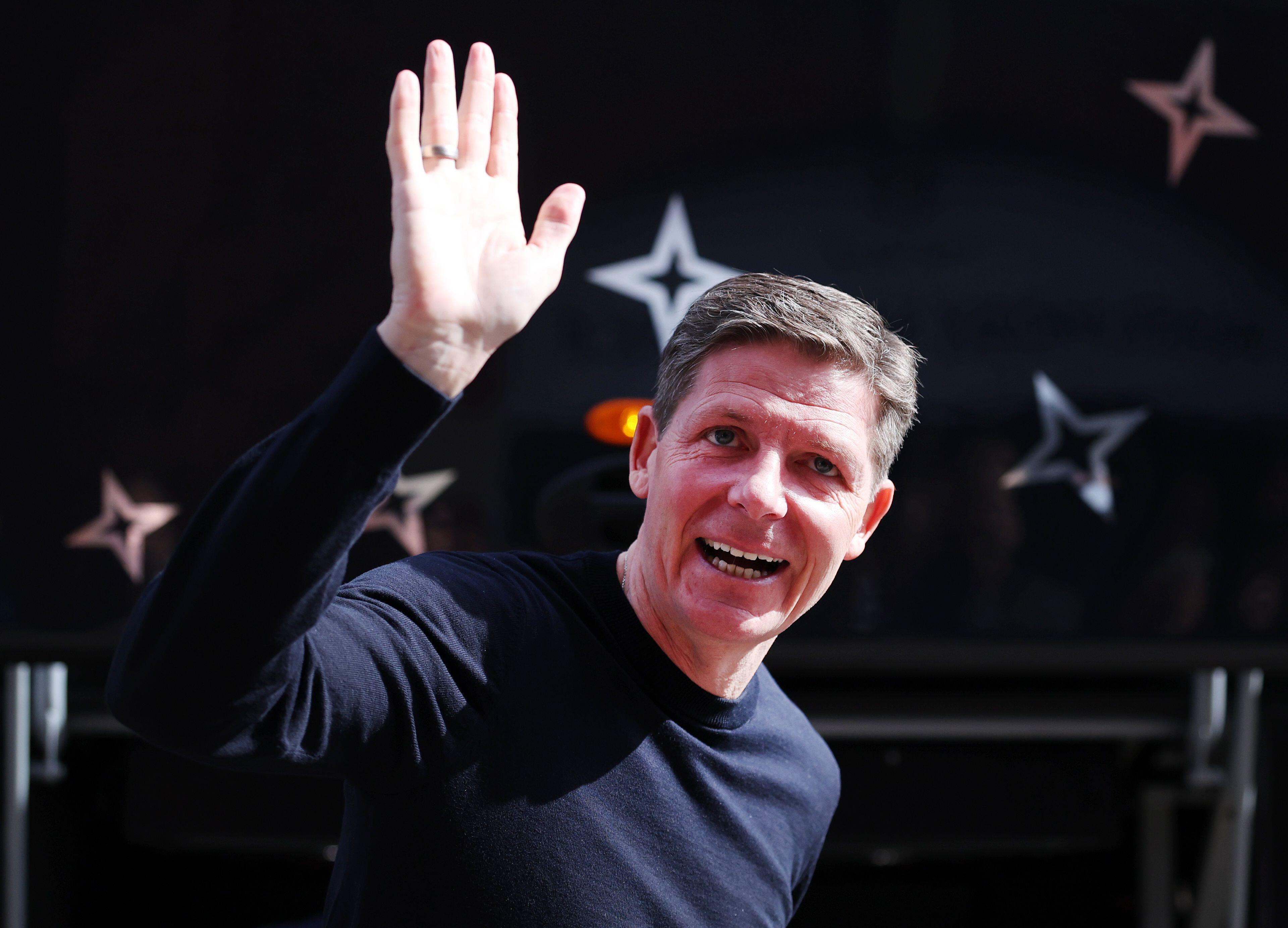Why Toni Kroos warrants all the praise for club and country
He's forced to battle hard for his place with Bayern Munich and Germany, but the midfield maestro is currently first choice for both. Jonny McConnell on why the 23-year-old deserves it all...

Bayern Munich vs Energie Cottbus, 26 September 2007. A young midfielder named Toni Kroos is substituted on in place of Luca Toni. Within 20 minutes, the 17-year-old (at that time Bayern's youngest-ever debutant) has assisted two goals for Miroslav Klose - the first a well-placed high pass, the second an almost identical one which provided Klose his hat-trick.
The 23-year-old German is now regarded as one of Europe's brightest prospects. He has established himself in his club team, and is fast becoming a key feature in the national one too.
Under the guiding hand of Jupp Heynckes, Kroos improved, perfecting his already outstanding passing, learning when to make runs and working on his finishing. Now he's just two assists shy of 50 in his career, as well as averaging almost 67 passes per game in his 17 appearances for Bayern so far this season.
Not everything has been perfect for the playmaker, though. As his club completed their first-ever league, cup and Champions League treble, Kroos suffered a knee injury in Bayern's quarter-final victory over Juventus. It kept him out of the last seven matches of the Bundesliga campaign, as well as the German Cup final and Champions League final. His replacement en route to European glory, Arjen Robben, excelled in his place.
The best features, fun and footballing quizzes, straight to your inbox every week.
The arrival of Pep Guardiola and Thiago Alcantara seemed to worry Kroos' supporters. Would the new manager demote him to accommodate his former player at Barcelona? Their fears didn't materialise, though, as Kroos continued to perform marvellously. The two midfielders under Guardiola will excel, and the 23-year-old has become one of the first names on the team sheet.

Guardiola clearly rates his young midfielder's creativity and versatility. He can play as a holding midfielder, a standard central midfielder or as an attacking midfielder - all positions in which he has featured. He's even played wide, too, and his versatility is one of the reasons why Guardiola has made him an integral part of Bayern's ominously successful campaign to date.
The youngster is a testament to what hard work can achieve. Overcoming various injuries, he is constantly battling against talented others to earn his place in the Bayern side, and continually having to impress to maintain his starting spot in the German national team. His man-of-the-match performance against England showed his class, as he dictated the game throughout.
With the World Cup approaching, Kroos will be eager to sustain his form and push to play football for his country. Both Guardiola and Joachim Löw have sent high praise his way, the former hailing him as "an exceptional player" and Löw labelling the Bayern man's recent performances against Austria and the Republic of Ireland as "insanely good".
But this also means that expectations are high. Pressure is what many players thrive under, and Kroos seems no different. It's a good job, really. Either way, there's no doubting that he is one of the most promising midfielders around.
He will be pressed by others desperate to make an impression before the world's biggest tournament, of course, and may have to go beyond his limits for Löw to keep him as a guaranteed starter. Considering the quality of the other stars vying for a place in the German side - namely Mario Götze, Sami Khedira, Sven and Lars Bender - keeping this bunch at bay would be some feat for any player.
And so the big question that must be asked: could the Bayern man be key to Germany finally winning that elusive fourth World Cup? From what we've seen in his six years as a professional, Kroos can definitely make the difference.
